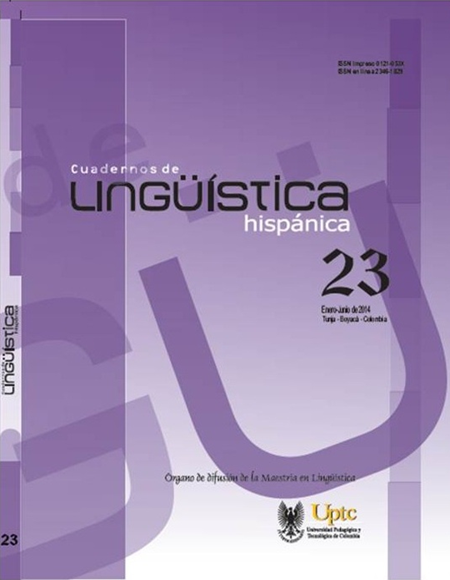Electronic Engineering students’ interactions through forums in the virtual component of a blended learning course

Abstract
This article originates from a research project that gathers findings regarding social interaction in a group of students of ESP (English for Specific Purposes) in the virtual component of amixed learning environment.The group consistsof 23 ElectronicEngineering students from Universidad Santo Tomás in Tunja. Our purpose is to give evidence of the construction of knowledge andmeaning related to a specific subject, using technical English. In order to show how this community interacted and what this process represents in the experience ofEnglish learning in ahigher education context, interaction processes are reported on from a qualitative perspective through transcriptions of the forums, observations and the application of a survey. Results reveal that the Electronic Engineering students established a social bond that led themto become a virtual learning community in which they shared ideas, agreed on meaning and constructed knowledge through the use of English for Specific Purposes.
Keywords
Mixed learning, forum, university, English for specific purposes, interaction.
References
- Clavijo, A., Hine, N., & Quintero, L. (2008). The virtual forum as an alternative way to enhance foreign language learning: Profile (9), pp. 219-236.
- Eliss, R. (1990). Instructed second language acquisition. Oxford: Basil Blackwell.
- F. Henri. (1992). Computer conferencing and content analysis in collaborative learning through computer conferencing: The Najaden Papers, A. Kaye (Ed.), Springer-Verlag, Berlin, 117-136.
- Gunawardena, C. N., Zittle & Rourke. (1997). Analysis of a global online debate and the development of an interaction analysis model for examining social construction of knowledge in computer conferencing; 26 Austin Avenue, Amityville, N.Y: J. Educational Computing research, 17 (4) Baywood Publishing Company.
- Howatt, A. (1984). A history of English language teaching. Oxford: Oxford University Press.
- Lear, J., Ansorge, C & Steckelberg , A. (2010). Interactivity/community process model for the online education environment. University of Nebraska at Kearney: MERLOT Journal of Online Learning and Teaching, 6, (No. 1). Retrieved on April 4, 2011 from http://jolt.merlot.org/vol6no1/lear_0310.pdf
- Levin, H. Kim., &M. R. (1990). Analyzing instructional interactions on electricalmessage networks, online education; New York: L. Harasim (ed.), Praeger, p.p 185-213.
- Lin, H., & Fang, Y. (2010). EFL learners‘ perceptions of computer mediated communication in a foreign language.World Academy of Science, Engineering and Technology, 66.
- Marshall, C. (2004). Designing qualitative research. fifth edition: SAGE publications. Retrieved on May 4th, 2011 from http://books.google.com.co/books?id=RbqXGjKHALoC&printsec=frontcover&dq=Qualitative+research+Marshall&hl=es&ei=ULzFTZK5IYe3tgeW_5WQBA&sa=X&oi=book_result&ct=result&resnum=1&ved=0CCUQ6AEwAA#v=onepage&q&f=false
- Menezes, L. (2009). Investigating interaction in an EFL online environment. Brazil: IGI Global.
- Miyazoe, T., & Anderson, T. (2012). Discuss, reflect, and collaborate: A qualitative analysis of forum, blog, and wiki use in an EFL blended learning course, 34, 146–152.
- Pang, Y., & Ngoh, J. (2005). Using the discussion forum: Learner perspectives. National University of Singapore. Reflections on English Language Teaching, 99–110.
- Schwier, R., & Dykes, M. (2004). The Struggle for community and content in virtual learning Communities. Lugano, Switzerland Proceedings of Ed-Media, 2976-2982.
- Seutter, D. (2007). Negotiating and interaction in ESL Pair activities. Portland State University.
- Swain,Merrill. (2000). The output hypothesis and beyond:mediating acquisition through collaborative dialogue .Sociocultural theory and second language learning, edited by James P. Landtolf. Oxford: Oxford University Press.
- Shin, C. (2010). Blended learning using video-based blogs: Public speaking for English as a second language students. National Pingtung University of Science and Technology. Australasian Journal of Educational Technology.
- Vygotsky, L.S. (1978). Mind in society: The development of higher psychological processes. Cambridge, MA: Harvard University Press.
- Wenger, E. (1998). Communities of practice: earning,meaning, and identity Cambridge University Press.